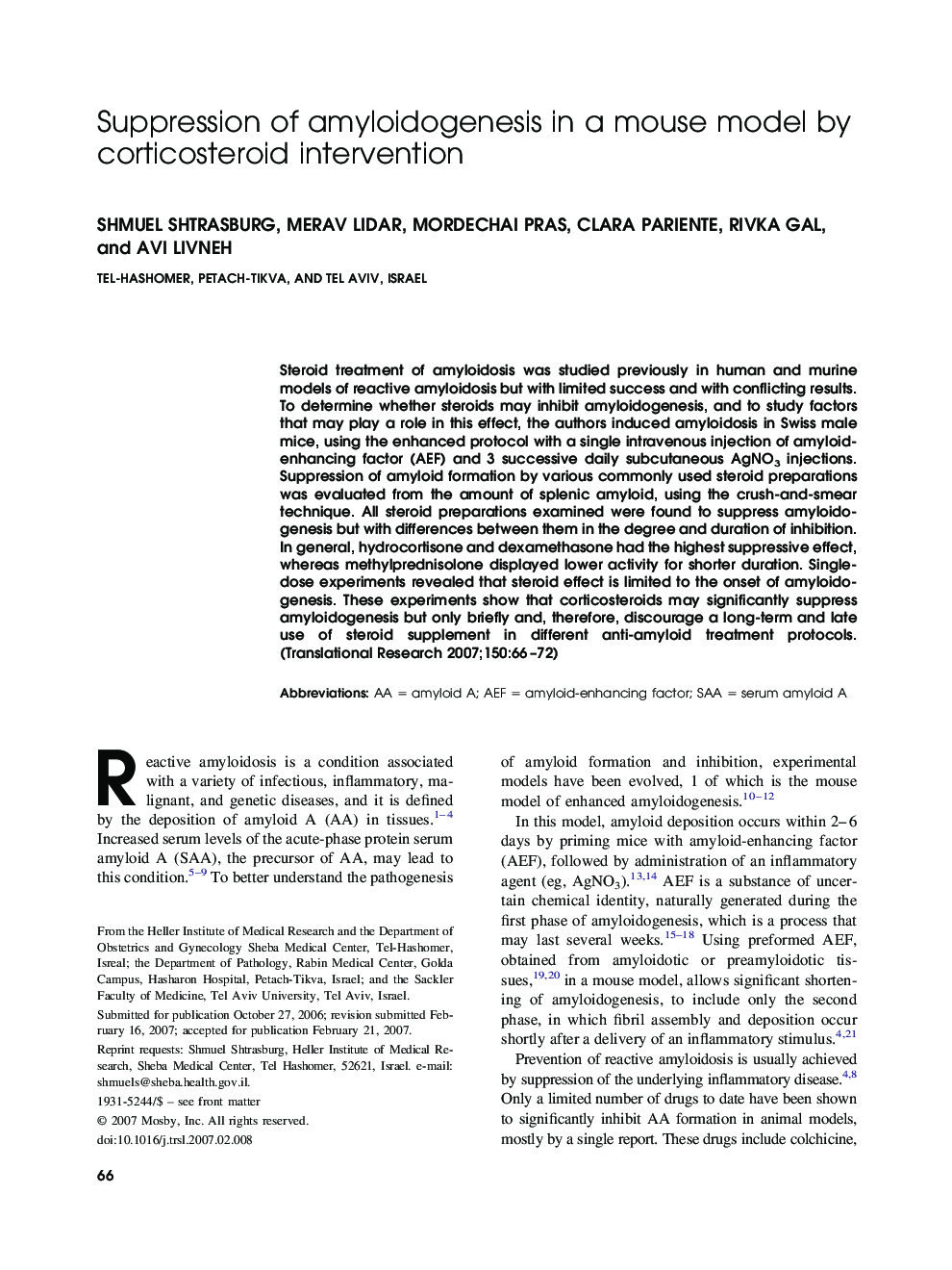| Article ID | Journal | Published Year | Pages | File Type |
|---|---|---|---|---|
| 3841432 | Translational Research | 2007 | 7 Pages |
Abstract
Steroid treatment of amyloidosis was studied previously in human and murine models of reactive amyloidosis but with limited success and with conflicting results. To determine whether steroids may inhibit amyloidogenesis, and to study factors that may play a role in this effect, the authors induced amyloidosis in Swiss male mice, using the enhanced protocol with a single intravenous injection of amyloid-enhancing factor (AEF) and 3 successive daily subcutaneous AgNO3 injections. Suppression of amyloid formation by various commonly used steroid preparations was evaluated from the amount of splenic amyloid, using the crush-and-smear technique. All steroid preparations examined were found to suppress amyloidogenesis but with differences between them in the degree and duration of inhibition. In general, hydrocortisone and dexamethasone had the highest suppressive effect, whereas methylprednisolone displayed lower activity for shorter duration. Single-dose experiments revealed that steroid effect is limited to the onset of amyloidogenesis. These experiments show that corticosteroids may significantly suppress amyloidogenesis but only briefly and, therefore, discourage a long-term and late use of steroid supplement in different anti-amyloid treatment protocols.
Keywords
Related Topics
Health Sciences
Medicine and Dentistry
Medicine and Dentistry (General)
Authors
Shmuel Shtrasburg, Merav Lidar, Mordechai Pras, Clara Pariente, Rivka Gal, Avi Livneh,
